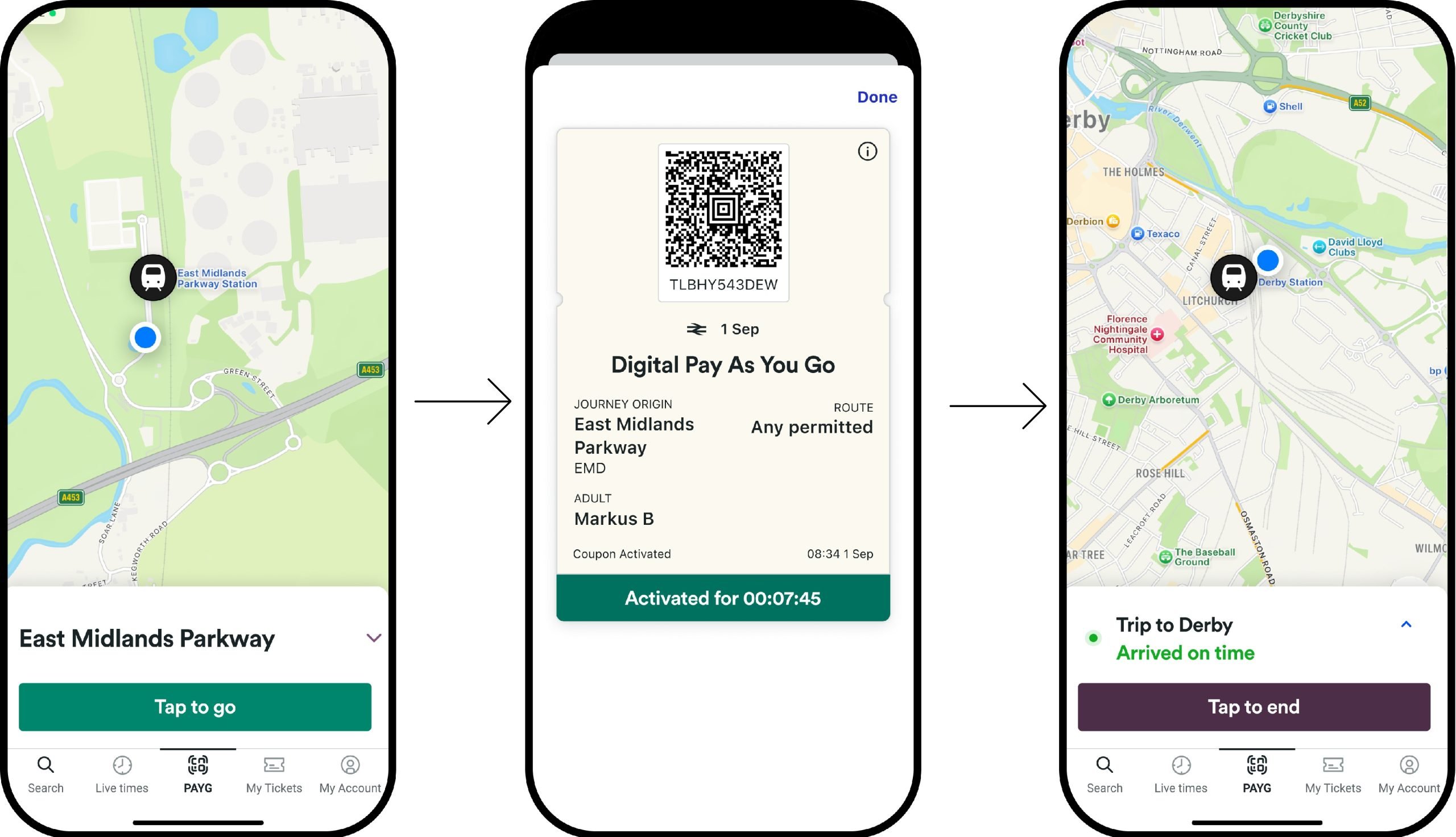If you’re tired of censorship and dystopian threats against civil liberties, subscribe to Reclaim The Net.
A new GPS-based rail fare system is set to launch in England that will track passengers’ movements via their smartphones and charge them after the fact, eliminating the need to buy tickets up front.
While it’s being promoted as a step toward a simpler, more efficient travel experience, the system fundamentally relies on real-time location tracking, drawing attention to the increasing role of surveillance in routine public services.
The trial started on September 1 on East Midlands Railway routes between Leicester, Derby, and Nottingham.
Later in the month, it will be extended to Northern Rail services in Yorkshire, including stops in Leeds, Sheffield, Harrogate, Doncaster, and Barnsley.
A total of 4,000 spots are available for those who register through train operator websites.
Participants will use an app that generates a barcode for scanning at ticket gates. Once scanned, the phone’s GPS activates, logging the passenger’s movements throughout the day.

The system then calculates the cost based on distance travelled and bills the passenger at day’s end. Operators say the fare will always be the cheapest possible for the route taken.
Rail minister Lord Peter Hendy has described the current ticketing structure as “far too complicated and long overdue an upgrade to bring it into the 21st century.” He added, “Through these trials we’re doing just that, and making buying tickets more convenient, more accessible and more flexible.”
“By putting passenger experience at the heart of our decision-making we’re modernizing fares and ticketing and making it simpler and easier for people to choose rail,” he said.
While officials continue to frame the scheme as a win for convenience and pricing, the technology brings a new layer of routine surveillance into an already data-heavy transit environment.
The bigger concern isn’t just the tech itself, but how easily this kind of tracking is becoming routine. Getting from A to B is now about generating a detailed record of where you go, when you go, and how often.
That data builds up fast, and it doesn’t just sit in a silo. It can be linked to names, behaviors, patterns, and even the people you travel with. As this kind of system spreads, avoiding constant monitoring in public spaces gets harder.
There’s also no clear line around how this data will be handled. Who gets access, how long it’s kept, and what else it might be used for are all open questions.
The pitch is all about convenience, but skipping the ticket queue might come at the cost of giving up control over where your data ends up. Once your location history is logged, it rarely stays put. It can be passed around, analyzed, and folded into systems that reach far beyond rail travel.
If you’re tired of censorship and dystopian threats against civil liberties, subscribe to Reclaim The Net.
The post England Trials Smartphone Rail Payment System with Real-Time Phone Location Tracking appeared first on Reclaim The Net.
Click this link for the original source of this article.
Author: Ken Macon
This content is courtesy of, and owned and copyrighted by, https://reclaimthenet.org and its author. This content is made available by use of the public RSS feed offered by the host site and is used for educational purposes only. If you are the author or represent the host site and would like this content removed now and in the future, please contact USSANews.com using the email address in the Contact page found in the website menu.





